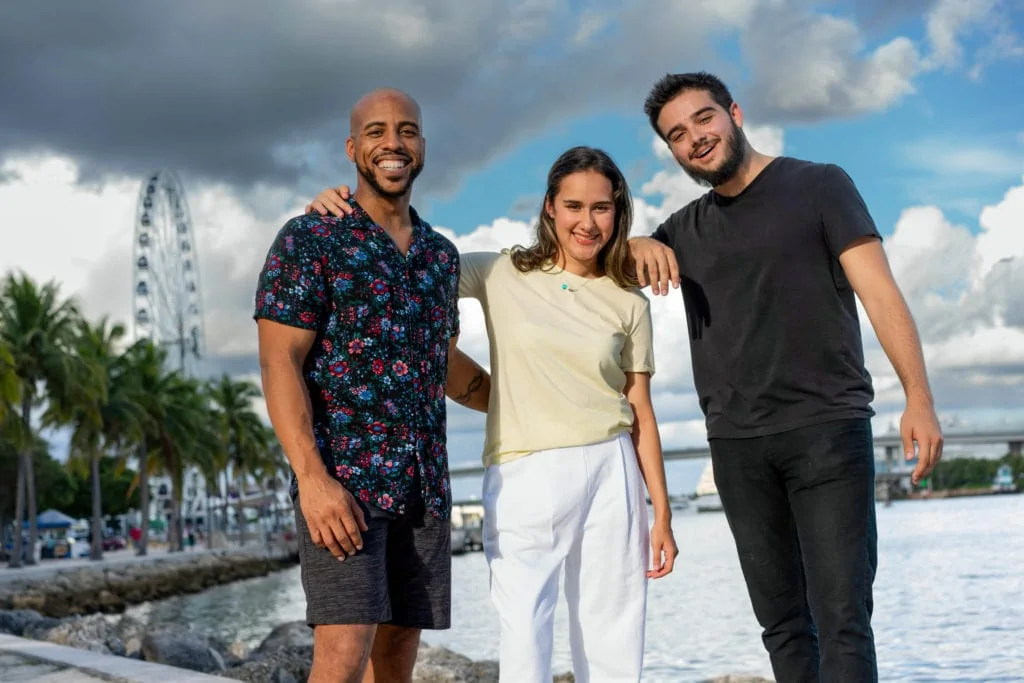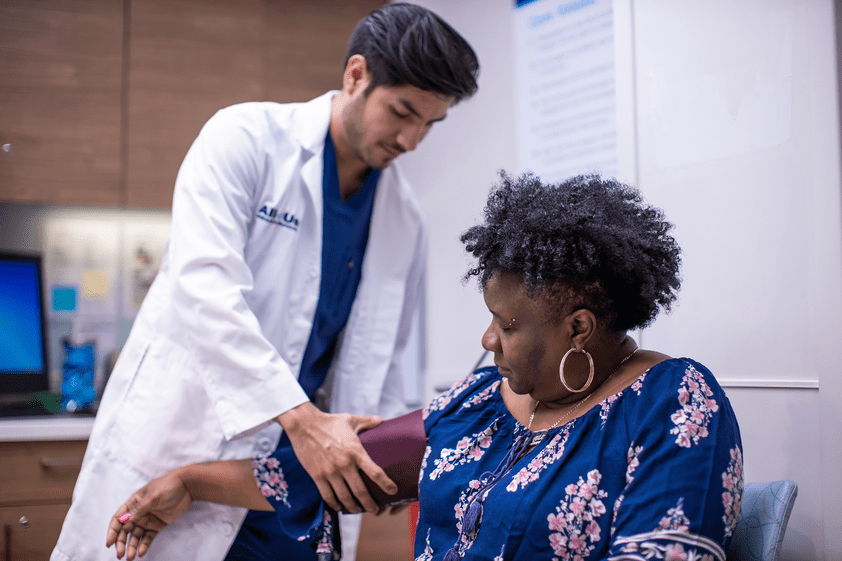
All of Us Research Program
About All of Us Research
In May 2018, the National Institutes of Health (NIH) announced that national enrollment for the All of Us Research Program, a momentous effort to advance individualized prevention, treatment and care for people of all backgrounds began. People ages 18 and older, regardless of health status, are now able to enroll.
NHMA and All of Us Research
The National Hispanic Medical Association is proud to be a partner of All of Us Research as it seeks to transform the relationship between researchers and participants, bringing them together as partners to inform the program’s directions, goals and responsible return of research information.
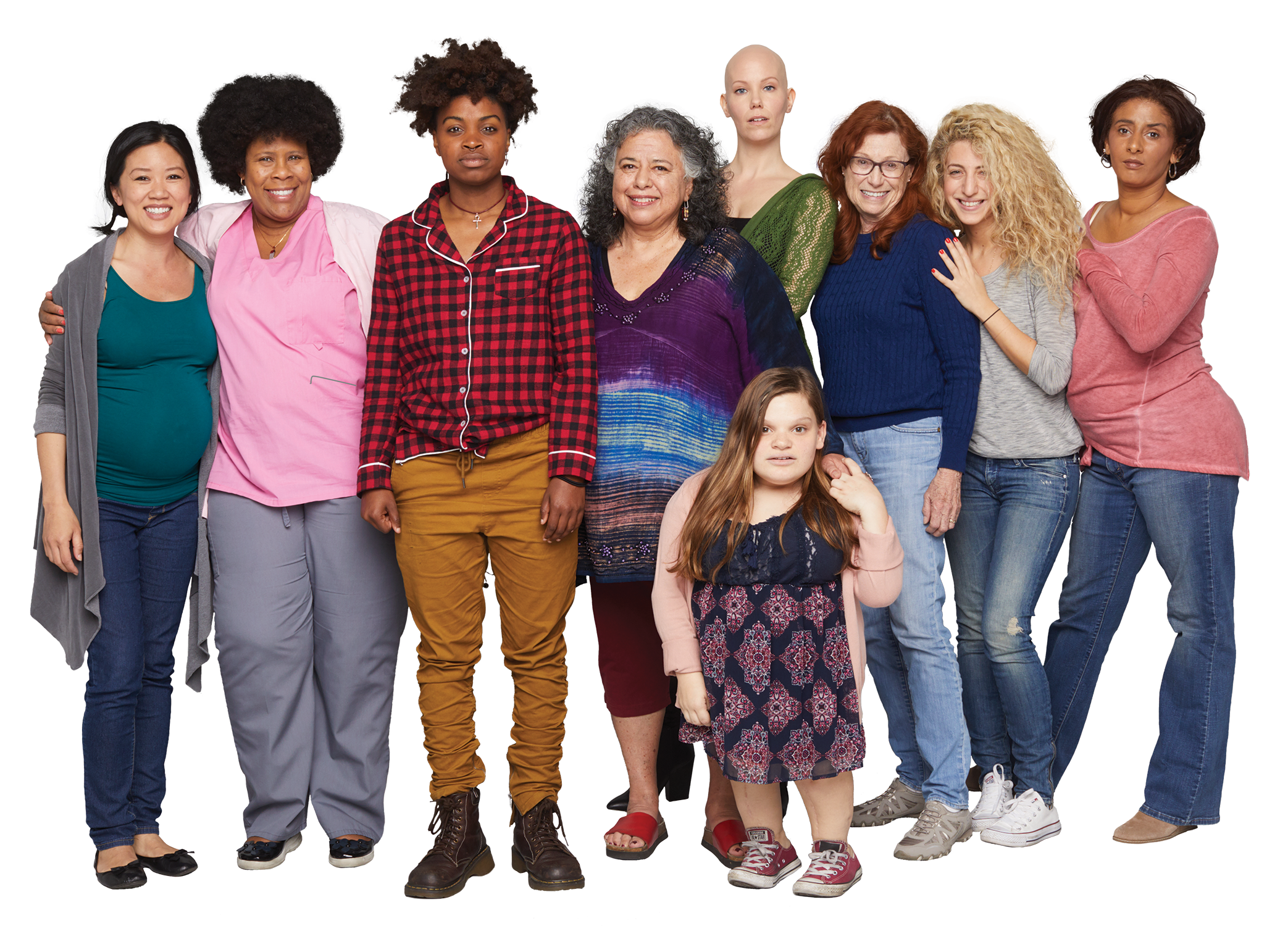
Minority Representation in Clinical Trials
Minorities make up 38% of the U.S. population and are on track to rise to over 56% of the population. But they only make up 10% of clinical trial participants.
African Americans make up 13.2% of the U.S. population, but only 5% of clinical trial participants nationwide.
Hispanic people make up 17% of the U.S. population, but only 7.6% of NIH clinical trial participants and 1% of clinical trial participants nationwide.
The Researcher Workbench platform and its suite of custom tools are available to approved researchers. The Researcher Workbench provides access to Registered Tier data. Its powerful tools support data analysis and collaboration. The workbench also provides integrated help and educational resources through the Workbench User Support Hub.
Learn More About the Researcher Workbench
Professional Providers
- Precision medicine is still in the early days, so providers do not have enough information available to provide precision care for many conditions.
- Developing individualized approaches to care often requires overtime.
- It can be difficult to coordinate care between many different providers, especially with medical records and key data scattered in different silos.
Biomedical Researchers
- Researchers spend a lot of time and resources creating new IT systems, databases, and analytic tools.
- Data collection is not standardized so data can be siloed and difficult to integrate.
- A single lab’s resources may not be sufficient to answer the research question.
Innovative Aspects of All Of Us
- Diversity at the scale of 1 million people: demographically, geographically, medically, and especially those underrepresented in biomedical research
- Diversity of data types collected longitudinally: clinical, environmental, genetic, behavioral, socioeconomic
- Focus on participants as partners: included in governance, invited to co-invent systems and give input into the science, choice to receive all data and information back
- National, open resource for all: open to the public and all researchers, open source software & tools
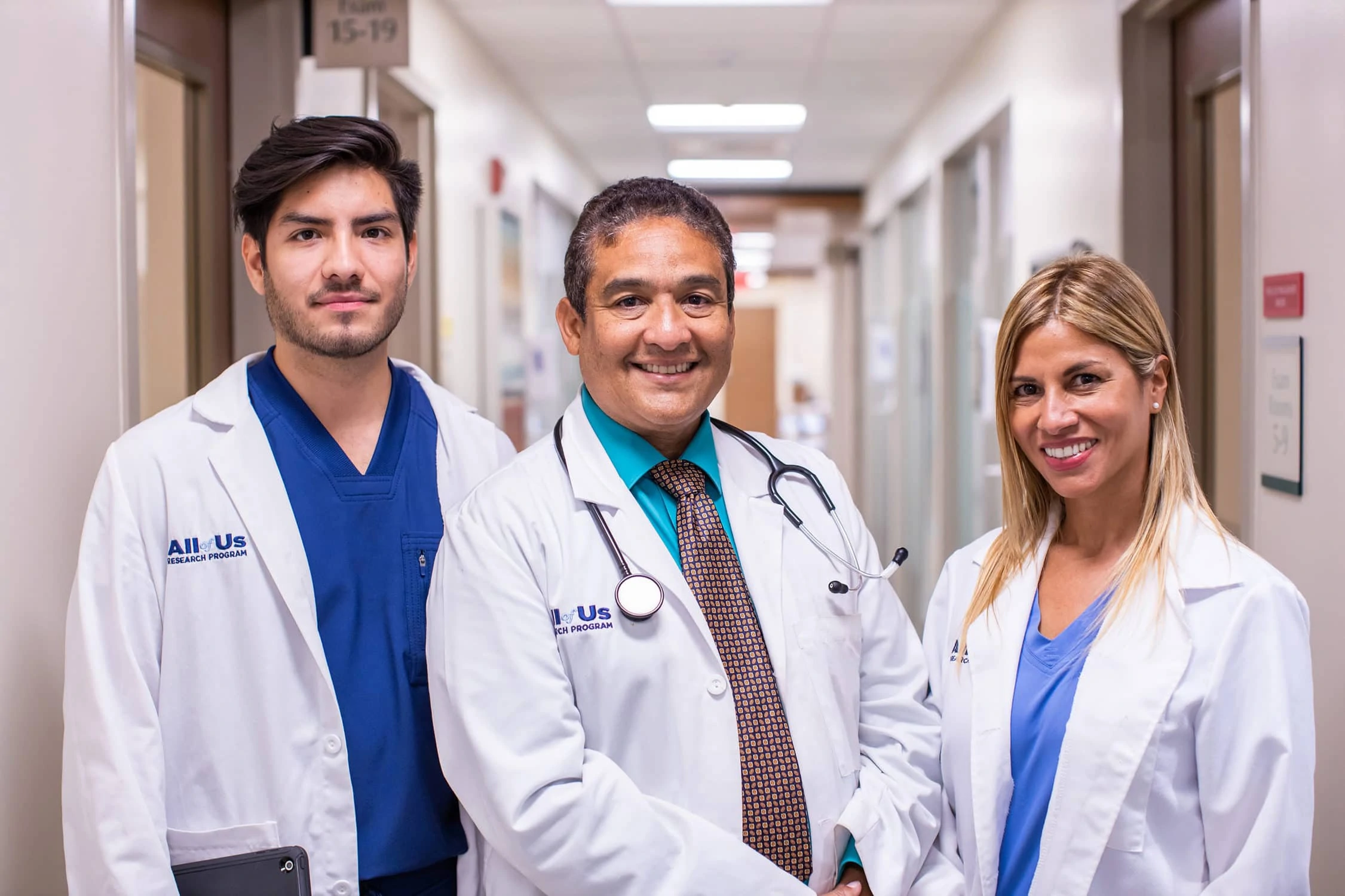
What is the promise for providers?
- Over time, increased scientific evidence and improved guidelines to enable precision medicine opportunities for more people and conditions:
- Better understanding of the impact of environment and lifestyle factors on health.
- Increased knowledge of differences in risk factors and response to treatments among diverse populations.
- More information on the development of conditions that will allow for earlier detection.
- Deeper understanding of different conditions that may allow for better stratification.
- Innovations that may make it easier to share electronic health records with other providers and patients.
- New knowledge to help address health disparities, increase patient engagement, and understand the usefulness of consumer health devices and apps.
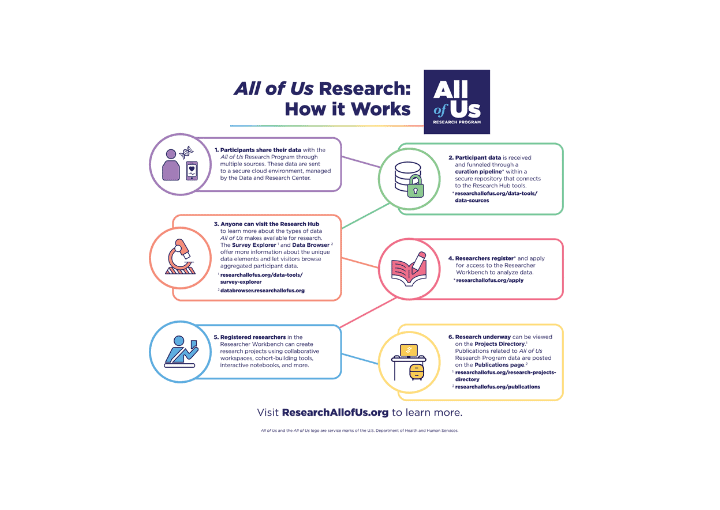
Key Facts for Providers about the All of Us Research Program
- Participation is free.
- Patients do not need to change providers to join.
- Enrollment will not interfere with the way patients receive care from their current health care team.
- Participants will be asked to complete online surveys about their health history, lifestyle habits, and environment.
- Participants may be asked to provide access to their electronic health records.
- Participants may be asked to visit a partner site to have basic physical measurements taken and to provide blood and urine samples. If they do so, they will receive $25 for their time.
- The program has rigorous safeguards in place to protect data security and participant privacy.
- The program may last for 10 years or more.
- Participants may withdraw at any time.
- Participants will have access to their own data and summarized results from across the program.
What is the All of Us Research Program?
The All of Us Research Program is an ambitious effort to gather data from one million or more people living in the United States to accelerate research and improve health. The program will be open to people both healthy and sick, from all communities. Unlike a single research study focused on a specific disease or population, All of Us will serve as a national resource for thousands of studies, covering a wide variety of health conditions.
Who can join All of Us?
Initially, enrollment will be open only to those who live in the United States, are 18 years of age and older, are able to provide consent on their own, and are not currently incarcerated. In the future, we will expand enrollment to include children and other special populations.
What will my patients be asked to do?
Participants will be asked to complete surveys and share information about their health history, lifestyle habits, and environmental exposures over a number of years, Participants may also be asked to provide access to their electronic health records, and go to a local enrollment center to have physical measurements taken and to provide blood and urine samples.
Will my patients have access to results and data from the program?
Participants will have access to their own data along with summarized results from across the All of Us Research Program. All of Us will not communicate directly with participants’ care teams, but participants may choose to share All of Us information with their providers.
How will you protect my patients’ privacy?
The program has numerous safeguards in place to minimize potential risks to data security and participant privacy. For example, we encrypt participant data, keep participants’ names and other personal identifiers separate from their health information, and test the security of the All of Us systems on an ongoing basis.
Who will be able to access the All of Us data?
The data All of Us collects will be accessible to researchers in the United States and around the world to accelerate health research and medical breakthroughs. There are strict riles researchers must follow to access the data, to keep participant information private and secure.
